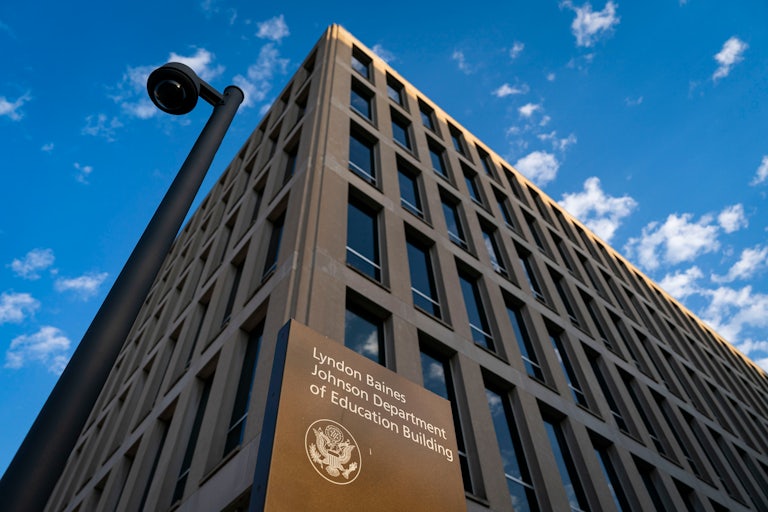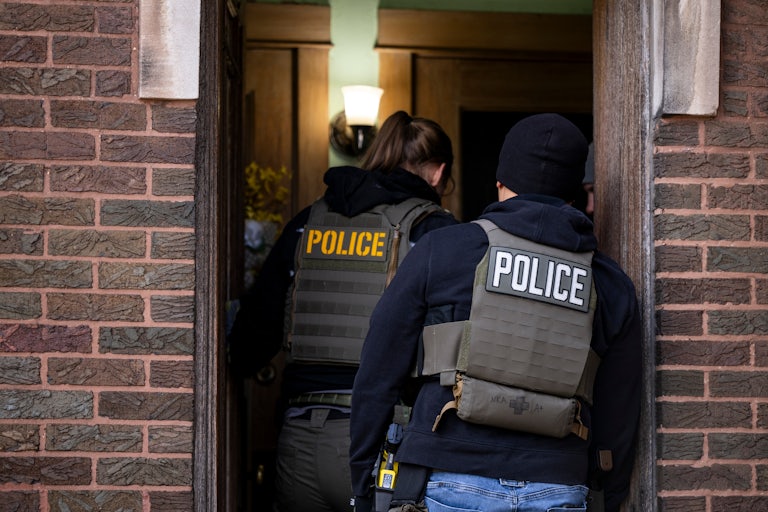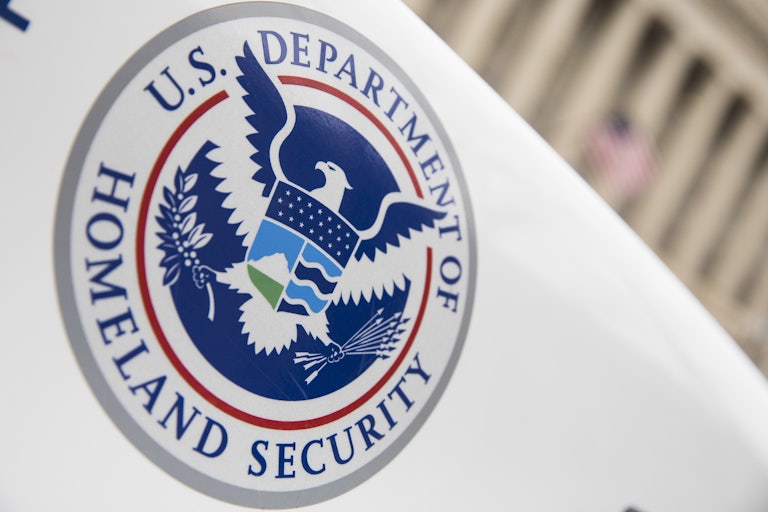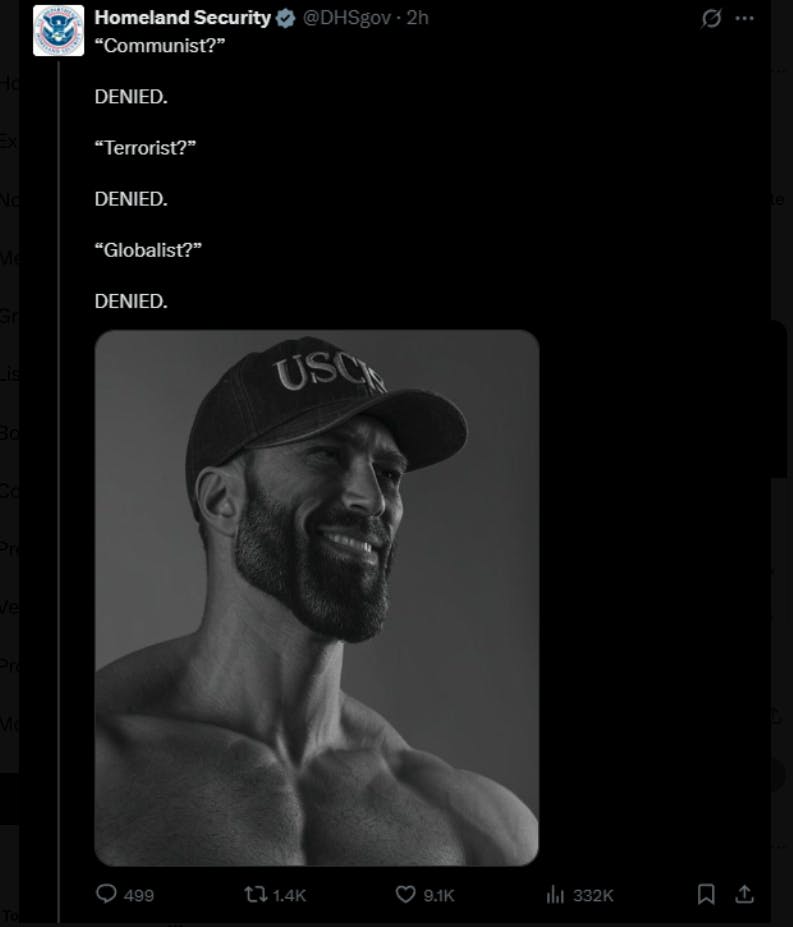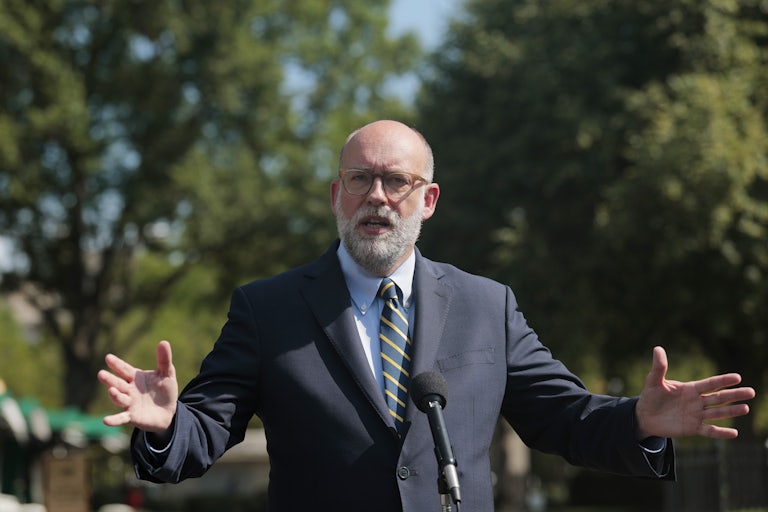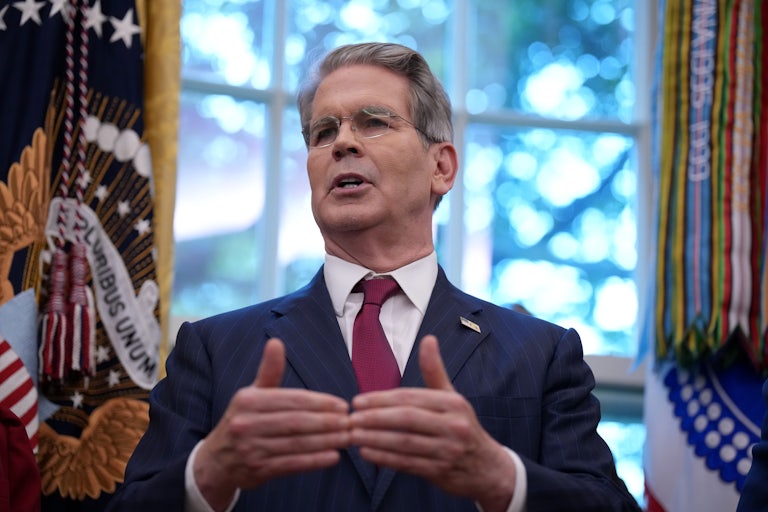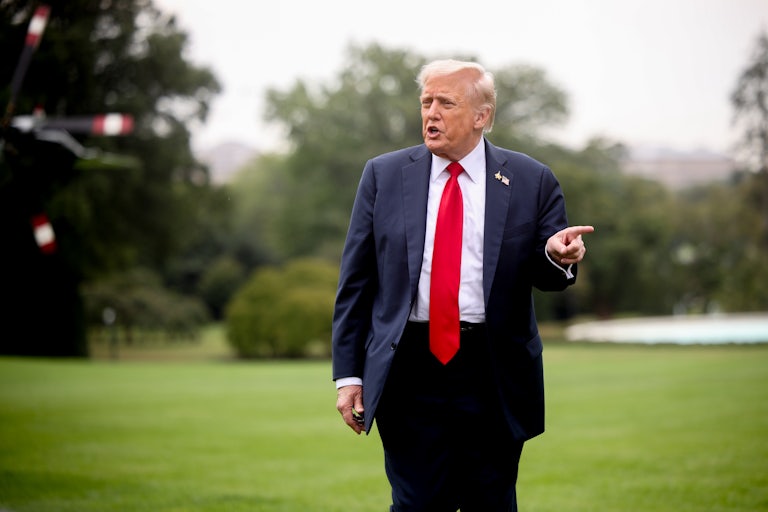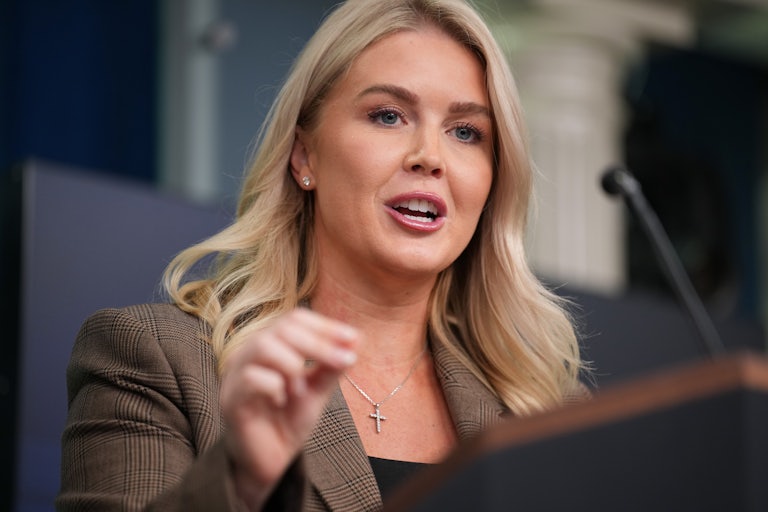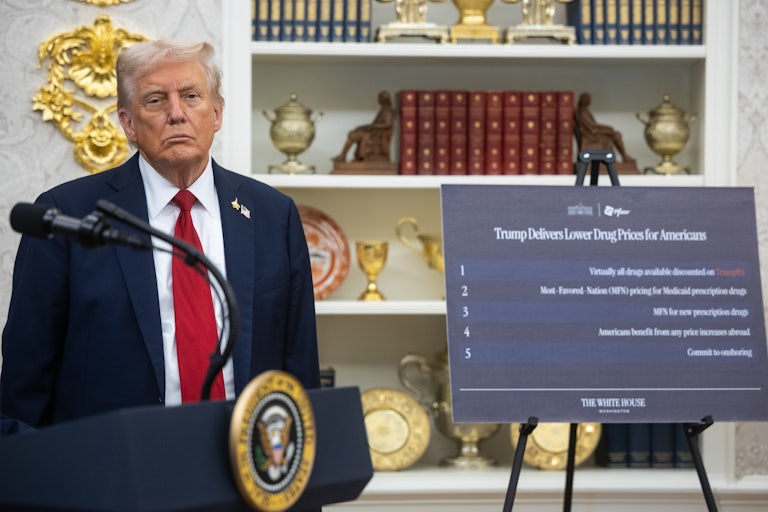Trump Gives Himself Untold Power With Drug Cartel Declaration
Donald Trump has informed Congress we are now at war with drug cartels.
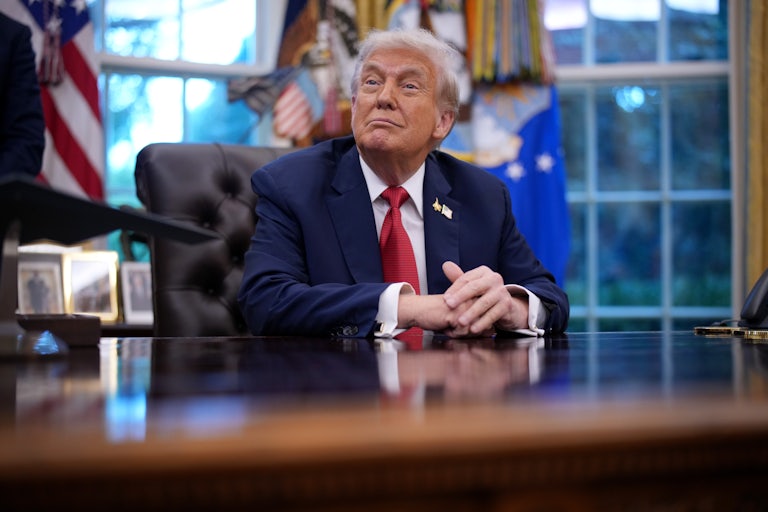
The president who promised an “end to endless wars” just rekindled one—the war on drugs.
The New York Times obtained a confidential memo sent to Congress this week that announced President Trump had “determined” that the U.S. is actively at war with drug cartels, which are now officially considered “nonstate armed groups.” The move comes after the Trump administration’s repeated strikes on what it claims were “drug boats” in the Caribbean.
“Based upon the cumulative effects of these hostile acts against the citizens and interests of the United States and friendly foreign nations, the president determined that the United States is in a noninternational armed conflict with these designated terrorist organizations,” read the notice. It contained no further specifics as to what groups will now be designated as terrorists.
The obvious issue here is that the purposefully vague classification of “nonstate armed group” will allow the Trump administration to continue to administer unilateral, extrajudicial violence against whomever they see fit. The notice also stretches international law, which requires a “nonstate armed group to meet a certain threshold. Many drug cartels are more loosely tied groups of smugglers than they are organized and militant terror groups. But now the Trump administration has the language to justify treating them like it.
“Not surprised that the administration may have settled on such a theory to legally backfill their operations,” former State Department lawyer and armed conflict law expert Brian Finucane told the Times. “I had speculated they might do so. One major problem, however, is that it is far from clear that whoever they are targeting is an organized armed group such that the U.S. could be in a noninternational armed conflict.”
He also went on to describe Tren de Aragua, one of Trump’s favorite targets, as a “loosely organized cells of localized individual criminal networks” that was too “decentralized” to be treated as a nonstate armed group.
This is far from the first time Trump has used wartime language to justify his version of the war on drugs. In March, President Trump used the Alien Enemies Act of 1798—untouched since the War of 1812 and the Japanese internment of the 1940s—to push the deportation of more than 200 Venezuelans, claiming they were Tren de Aragua gang members whom we were “in a time of war” with.
The first war on drugs was fought domestically against Black and brown citizens, with tactics like broken-windows policing and excessive criminal charges. Trump’s war on drugs will be defined by unilateral attacks on drug boats and violations of Mexican and South American countries’ sovereignty in the name of keeping Americans safe. But given the vague definitions outlined in the memo, this will likely lead to more violence, more surveillance, and more suffering for those Trump thinks we’re at war with.
